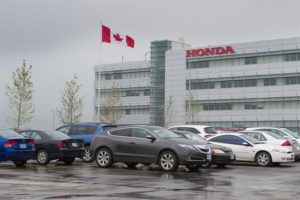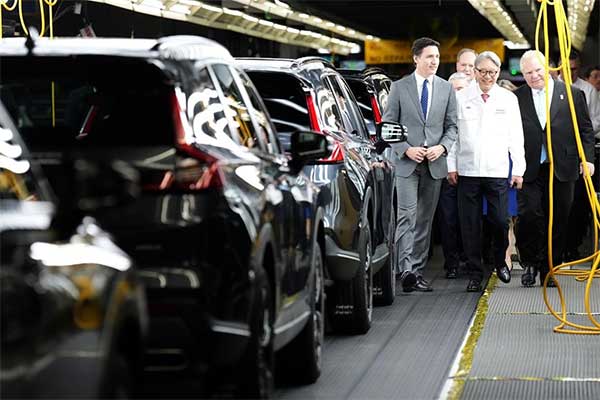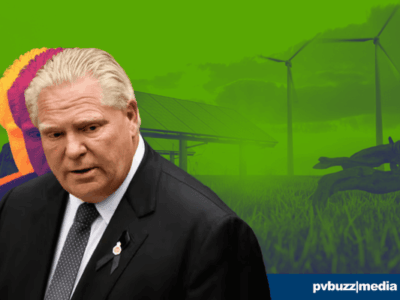Honda is set to embark on a monumental journey in Ontario, with plans to invest an astronomical $15 billion in constructing four new electric vehicle (EV) manufacturing plants.
Prime Minister Justin Trudeau and Ontario Premier Doug Ford jointly announced this transformative initiative, emphasizing its potential to shape economic growth for decades. This marks Canada’s largest-ever auto investment, with Trudeau crediting the nation’s abundant natural resources and highly skilled workforce for its realization.
Building a Comprehensive EV Supply Chain
The investment aims to establish Canada’s first comprehensive EV supply chain, which includes Honda’s inaugural EV assembly plant and a dedicated EV battery facility in Alliston, Ontario. By partnering with POSCO Future M Co., Ltd. and Asahi Kasei Corporation, Honda will also expand its operations to include cathode active material and precursor (CAM/pCAM) processing and separator plants.

The American Honda Motor Company, Inc. (sometimes abbreviated as AHM) is a North American subsidiary of the Honda Motor Company, Ltd. The company combines product sales, service and coordinating functions of Honda in North America, and is responsible for distribution, marketing and sales of Honda and Acura brand automobiles, Honda power sports products, including motorcycles, scooters and all-terrain vehicles, and Honda power equipment products, including lawnmowers, tillers, string trimmers, generators, small displacement general-purpose engines and marine outboard engines.
Upon reaching full operational capacity by 2028, the assembly plant is projected to assemble up to 240,000 vehicles annually. This initiative is expected to create over 1,000 well-paying manufacturing jobs and maintain the employment of 4,200 associates across Honda’s existing Ontario facilities. Additionally, the provincial government has pledged direct and indirect incentives worth $2.5 billion to support this initiative, highlighting a strategic shift in global supply chain dynamics.
Finance Minister Chrystia Freeland pointed out federal efforts to incentivize EV investment through tax credits, potentially extending upwards of $2.5 billion to Honda and its partners. Honda CEO Toshihiro Mibe expressed confidence in the forthcoming rollout of the investment plan over the next six months, aiming to leverage Canada’s EV supply chain investment tax credit.
Despite criticism from federal Conservatives, Trudeau and Ford defended the shared $5 billion investment, stressing its potential to generate tens of thousands of spinoff jobs and fortify Canada’s position in the green economy. With a nod to future elections, Trudeau presented the investment as a pivotal choice between fiscal austerity and forward-looking investment. Emphasizing bipartisan collaboration, Trudeau and Ford highlighted the enduring impact of these investments on future generations, illustrating a united front in steering Ontario toward economic prosperity.
As the investment unfolds, stakeholders remain optimistic about its potential to strengthen Canada’s EV sector and solidify its status as a global leader in sustainable automotive manufacturing.












Comments